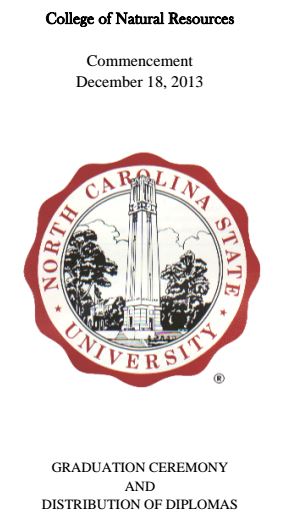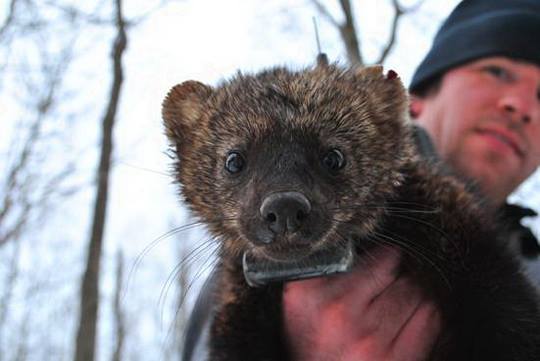The Board of Trustees for the Endowment Fund of NC State University has agreed to terms for the sale of Hofmann Forest – a move that will pave the way for unprecedented investments in students, faculty, research and extension in the College of Natural Resources (CNR) and continued access for students and faculty.
Jerry Walker, manager of the purchaser, has signed an agreement to buy the 79,000-acre property near Jacksonville, NC for $150 million. Walker is a third-generation agri-businessman who runs the family’s multi-state agriculture business based in Illinois.
Proceeds from the sale will be placed in an endowment with the annual return of interest benefitting the College of Natural Resources, in keeping with the intent of the original deed gifted to the Endowment Fund in 1977 by the private non-profit Forestry Foundation (now known as the Natural Resources Foundation). The benefit to CNR is estimated to be $6 million annually, which is more than three times the current annual yield from the forest.
The purchase agreement also indicates the buyer’s intent to address additional objectives set by the Natural Resources Foundation, which include access for students and faculty to conduct research, preserving the legacy by keeping the Hofmann name, and maintaining a working forest on the property.
“The income generated annually by the investment of the sale proceeds will provide tremendous educational and research opportunities for the College of Natural Resources and its students,” said NC State Chancellor Randy Woodson.
“As an asset, the forest’s full potential was not being realized,” Woodson added. “We have an obligation to our stakeholders – our students, faculty, staff and alumni – to ensure our colleges are positioned to provide a robust academic environment that attracts world-class faculty and the best and brightest students.”
Additional resources generated by the endowment will go toward promoting growth in research and academic offerings within CNR, and making progress toward the college’s mission and strategic plan, which includes transforming the college into the go-to leader for solutions to natural resource challenges across the state, nation and around the globe.
“We’re confident the resulting impact from Doc Hofmann’s legacy will be nothing short of transformational for our college,” said CNR Dean Mary Watzin. “CNR’s vision is to be a world leader among universities that are creating healthier and more sustainable communities.” The transaction will not affect the existing zoning of the property which permits its use for timber and agricultural purposes, the preservation of the two existing wetlands or the existing lease for Onslow County’s Deppe Park.
In addition, the purchase agreement recognizes the Department of Defense’s interest in obtaining an easement from the purchaser that would ensure long-term protection for approximately 70,000 acres of the property and formalize the military’s long-standing interest in the conservation of the property.
“Hofmann Forest is a wonderful property with a long and storied connection to the communities of Eastern North Carolina, and we are committed to preserving that legacy going forward,” said Walker. “We look forward to working with our military neighbors on a plan for maintaining the primary use of the land for timber and agriculture purposes.”
Additional Background •Hofmann Forest was purchased by the North Carolina Forestry Foundation, Inc. in 1934, later named the Natural Resources Foundation. The Foundation gifted the land to the NC State Endowment Fund in 1977 for the benefit of the College of Natural Resources.
•About 56,000 of the forest’s 79,000 acres function as a working forest. Other activities at the forest include agriculture, hunt clubs and an Onslow County park.
•There are approximately 1400 undergraduate students in the College of Natural Resources, including about 80 in the forestry program, and over 400 graduate students in the College’s MS and Ph.D. programs. The vast majority of the college’s outdoor education is conducted currently at Hill Forest and Schenck Forest.
•More than 98 percent of sponsored forestry research in the college is currently conducted at sites outside the Hofmann Forest (around the state and across the world).
•The income generated from Hofmann, similar to other forests, has produced a relatively low return on market value and subject to fluctuations in demand for houses. In fiscal 2012, Hofmann generated a net income of approximately $861,000 to support the college. With a 4% spending policy, the $150 million generated from the sale would result in $6 million in annual support to CNR.
Media Contact: Fred Hartman | | 919.515.7159
 Following the university-wide commencement ceremony this morning, Dean Mary Watzin will award diplomas to 218 summer and winter graduates of the NC State University College of Natural Resources at the Jane S. McKimmon Center in Raleigh. The college will award 63 graduate degrees and 155 undergraduate degrees.
Following the university-wide commencement ceremony this morning, Dean Mary Watzin will award diplomas to 218 summer and winter graduates of the NC State University College of Natural Resources at the Jane S. McKimmon Center in Raleigh. The college will award 63 graduate degrees and 155 undergraduate degrees.



